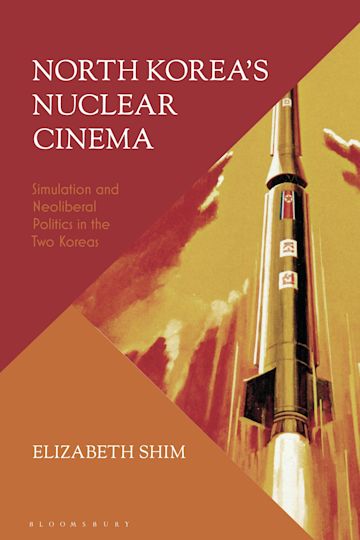Payment for this pre-order will be taken when the item becomes available
Free US delivery on orders $35 or over
You must sign in to add this item to your wishlist. Please sign in or create an account
North Korea's Nuclear Cinema examines why and how North Korea has transitioned to an image-based nuclear power in the changing context of a post-Cold War world. What exactly is the North Korean nuclear threat? Why is North Korea engaging in hostilities when its erstwhile adversaries have offered a diplomatic exit ramp? Chapter by chapter, it explains how North Korea's footage-based nuclear politics is presented as military practice, but ultimately traces its lineage to cinematic propaganda, a tradition that blurs the line between image and reality.
By leveraging cinematic resources in place of physical military mobilization, North Korea continues to move international political actors with the mere suggestion of nuclear power. At a moment when North Korea is enhancing media representation, this book dives into a timely exploration of how the regime is projecting state power as South Korean televisual media challenges the North Korean communist spectacle that has held a captive audience for decades.
| Published | Nov 14 2024 |
|---|---|
| Format | Hardback |
| Edition | 1st |
| Extent | 208 |
| ISBN | 9781350259485 |
| Imprint | Bloomsbury Academic |
| Dimensions | 9 x 6 inches |
| Publisher | Bloomsbury Publishing |
Elizabeth Shim is perhaps the most well-informed U.S. reporter on Korean politics, international relations, and media. Drawing upon her extensive knowledge and depth of insight, her book North Korea's Nuclear Cinema seamlessly weaves together modern North Korean history, international relations and politics, North Korean film history, and film interpretation. Its ambition sets it apart in the small but growing corpus of scholarship on North Korean cinema. Written in readable prose, the book is accessible to lay readers, who have interests in the reclusive nation, yet it has the requisite historical and theoretical depth to be relevant to Koreanists and to film historians.
David C. Oh, Editor of "Mediating the South Korean Other: Representations and Discourses of Difference in the Post/Neocolonial Nation-State"
Free US delivery on orders $35 or over
Your School account is not valid for the United States site. You have been logged out of your account.
You are on the United States site. Would you like to go to the United Kingdom site?
Error message.

